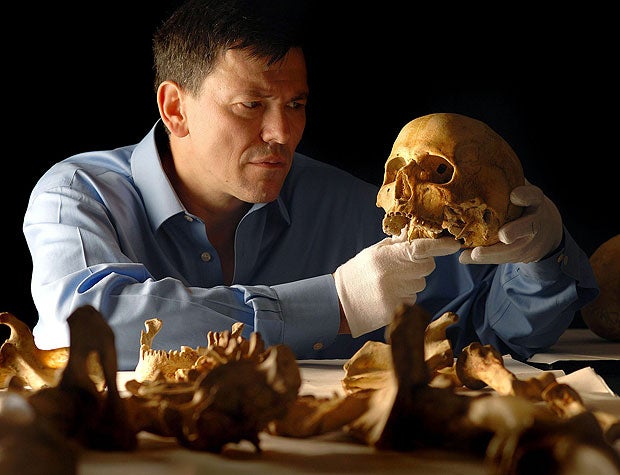Lost in translation: Mary Rose's demise blamed on multilingual crew

Your support helps us to tell the story
From reproductive rights to climate change to Big Tech, The Independent is on the ground when the story is developing. Whether it's investigating the financials of Elon Musk's pro-Trump PAC or producing our latest documentary, 'The A Word', which shines a light on the American women fighting for reproductive rights, we know how important it is to parse out the facts from the messaging.
At such a critical moment in US history, we need reporters on the ground. Your donation allows us to keep sending journalists to speak to both sides of the story.
The Independent is trusted by Americans across the entire political spectrum. And unlike many other quality news outlets, we choose not to lock Americans out of our reporting and analysis with paywalls. We believe quality journalism should be available to everyone, paid for by those who can afford it.
Your support makes all the difference.One of the greatest naval disasters in history occurred when the Mary Rose, pride of the English battle fleet, sank in the Solent just before dawn on 19 July 1545, in sight of the French fleet, with the loss of more than 400 lives. No one knows why. The delighted French claimed a direct hit, though in fact the ship was undamaged; the English blamed an undisciplined crew.
Now a medical researcher from University College London, believes that he has cracked the mystery, by studying the skulls of the men who drowned.
The problem, he believes, is not indiscipline but a simple inability to understand each other, because the crew spoke a different language from the officers.
Professor Hugh Montgomery and forensic experts were given permission by the Mary Rose Trust to examine the crew's remains. Scientists can determine roughly where a person grew up by analysing their teeth, which retain the type of water molecule they consumed in childhood. Heavier atoms mean a warmer climate. Lynne Bell, a forensic anthropologist, examined 18 crew members' remains, and was surprised to find that 11 of them must have come from near the Mediterranean.
"The analysis of the teeth suggests the men grew up in a warm climate, probably somewhere in southern Europe, Professor Montgomery said.
"It's also known that at this time Henry VIII was short of skilled soldiers and sailors and was trying to recruit mercenaries from the Continent."
Henry VIII's state papers reveal that six months before the Mary Rose sank, nine ships were caught in a storm and took refuge in Falmouth harbour. On board were 600 Spanish soldiers who had no money or food, and so had no choice but to join the English navy.
Contemporary accounts show that it was suspected that some problem with the crew had led to the sinking of the Mary Rose. The ship's last commander, Vice Admiral Sir George Carew, who drowned with his men, complained not long before the disaster that the crew included, "the sort of knaves whom he could not rule".
Professor Montgomery's theory is that the ship's officer spotted the French and ordered the ship to make a rapid turn; as it turned, it keeled, and an officer shouted at the Spanish crew to close the gun ports. Before they had understood the order, water rushed in.
Join our commenting forum
Join thought-provoking conversations, follow other Independent readers and see their replies
Comments